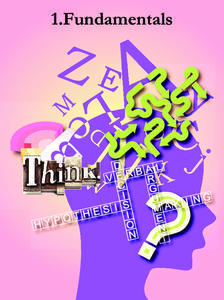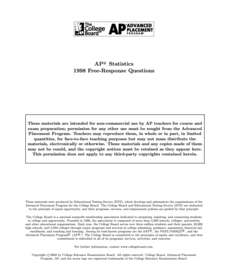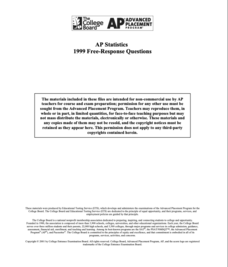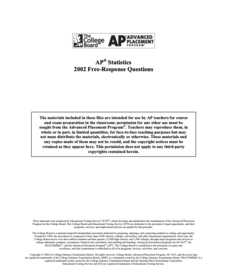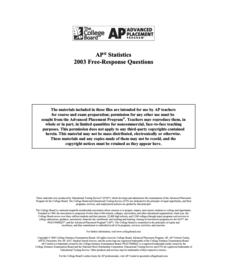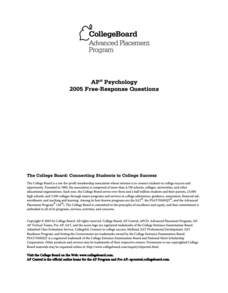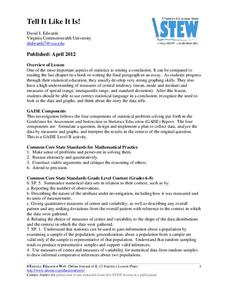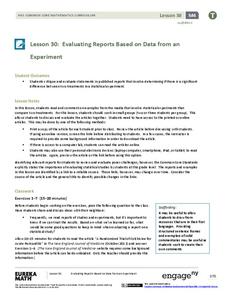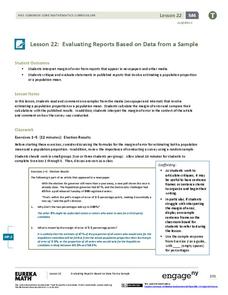EngageNY
Mid-Unit Assessment: Using Evidence to Support Analysis: “Frederick Douglass”
Show what you know! Scholars complete a mid-unit assessment using text evidence from Frederick Douglass. The teacher then presents expectations for independent reading assignment. Leaving the class, pupils turn in an exit ticket...
Education Bureau of Hong Kong
Fundamentals
"Fundamentals," the first lesson in a series of eight, introduces the basic concepts and strategies covered in a series of resources designed to teach high schoolers critical thinking skills. The worksheets and activities in this first...
PBS
Predicting/Making a Hypothesis
As an introduction to the hypothesis and testing method of investigation, young history detectives engage in a special investigation of a family artifact. After watching a short video that demonstrates the method, they develop a...
Literacy Design Collaborative
Existentialism and Kafka
Scholars read Kafka's The Metamorphosis and research for essays and articles on existentialism. After gaining information and evidence from their research, pupils write essays defining existentialism and its relationship on the work of...
Literacy Design Collaborative
"Masque of the Red Death" - Symbolism and the Development of an Allegory
Analyze chunks of Masque of the Red Death to determine Edgar Allan Poe's use of symbolism and development of allegory. Readers learn new vocabulary words, answer comprehension questions, and identify symbols throughout the story. They...
College Board
Teaching Students How to Write AP Statistics Exam Responses
But this is math—we don't need to know how to write! The article makes a point that class members in AP® Statistics should be comfortable writing as the exams require it. Individuals quickly realize that quality writing is crucial to a...
College Board
1998 AP® Statistics Free-Response Questions
Free-response questions form the 1998 AP® Statistics exam allow class members to analyze data from real-life situations. The situations include tracking defective parts, tracking butterflies, evaluating weed killers and determining...
College Board
1999 AP® Statistics Free-Response Questions
Closer to 2010 than expected. Several of the 1999 AP® Statistics free-response questions align to Common Core standards. Items ask pupils to analyze residuals, two-way tables, and calculate expected values to determine the fairness of a...
College Board
2000 AP® Statistics Free-Response Questions
A little communication goes a long way. Free-response questions from the 2000 AP® Statistics exam require pupils to communicate their results—not just perform calculations. The questions ask individuals to explain, discuss, and interpret...
College Board
2002 AP® Statistics Free-Response Questions
Statistically, prepared classes perform better. Teachers and pupils use the released 2002 AP® Statistics Free-Response questions to gain an understanding of how questions may be worded on the exam. Resources request that teachers put an...
College Board
2003 AP® Statistics Free-Response Questions
Hypothetically, knowing the structure of a test should help. Pupils use the released free-response questions from the 2003 AP® Statistics exam to become aware of the structure of questions on the test. Half the questions in the set...
College Board
2001 AP® Statistics Free-Response Questions
Develop a complete understanding of the course. Pupils and teachers use the six free-response questions to gather information about aspects of the AP® Statistics course. The resource and test section show how items cover the content. A...
College Board
2005 AP® Psychology Free-Response Questions
How can diagnostic labels help children? Is hypnosis a useful tool or a fraudulent practice? An examination prompt explores controversies in psychology. A second, structured inquiry unpacks perception—and its various influences.
Biology Junction
Scientific Method
Break down the scientific method to get a better grasp on the proper way to use it. A short presentation walks through each step in the scientific method and the proper vocabulary associated with each. Scholars complete the worksheet to...
American Statistical Association
Tell it Like it is!
Scholars apply prior knowledge of statistics to write a conclusion. They summarize using correct academic language and tell the story of the data.
University of North Carolina
Conclusions
If you see phrases such as in conclusion or this is my paper about, you know you're about to read a poorly worded conclusion. A tip sheet, the fifth resource in a series of handouts to improve writing, helps scholars craft better...
Trinity University
Explain Yourself: An Expository Writing Unit for High School
Introduce expository writing with a unit that asks writers to craft an essay to explain a belief, value, or priority that is important to them. Mini-lessons within the unit focus on crafting thesis statements and conclusions, selecting...
Virginia Department of Education
Logic and Conditional Statements
If there is a conditional statement, then there is a hypothesis and conclusion. Pupils learn how to identify the parts of conditional statements. Class members continue to work with conditional statements and rewrite them in their many...
Balanced Assessment
Tie Breaker
Develop a tie-breaking policy to determine a league champion. The assessment presents a scenario of finding a champion of a league with three teams tied. Pupils devise and defend a system that allows for only one team to be determined...
Bowland
Soft Drinks
"Statistics are no substitute for judgment" - Henry Clay. Young mathematicians use provided statistics from a soda taste test to explain why conclusions are faulty. They devise a new test that would be more appropriate than the one given.
EngageNY
Evaluating Reports Based on Data from an Experiment
They say you can interpret statistics to say what you want them to. Teach your classes to recognize valid experimental results! Pupils analyze experiments and identify flaws in design or statistics.
EngageNY
Drawing a Conclusion from an Experiment (part 2)
Communicating results is just as important as getting results! Learners create a poster to highlight their findings in the experiment conducted in the previous instructional activity in a 30-part series. The resource provides specific...
EngageNY
Drawing a Conclusion from an Experiment (part 1)
Challenge your classes to complete an experiment from beginning to end. Learners make their own hypotheses, collect and analyze their own data, and make their own conclusions. They are on their way to becoming statisticians!
EngageNY
Evaluating Reports Based on Data from a Sample
Statistics can be manipulated to say what you want them to say. Teach your classes to be wise consumers and sort through the bias in those reports. Young statisticians study different statistical reports and analyze them for misleading...



